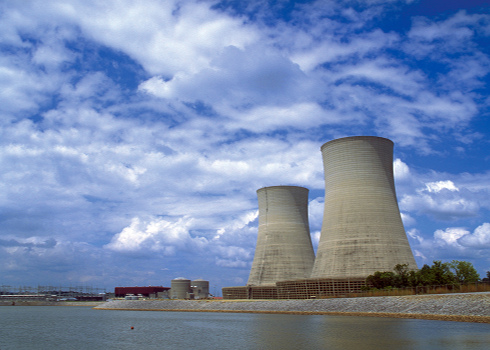The Nuclear Regulatory Commission (NRC) is not as fundamentally split as it previously appeared on the issue of post-Fukushima U.S. nuclear regulation, as a Tuesday Senate hearing showed. By the end of the hearing, the majority of the 5-person commission sounded reasonably ready to vote on at least a few of the recommended safety measures within 90 days.
It is, however, not doing much to dissuade rising murmurs and recent reports that the commission is too close to its industry, as it became evident that the primary roadblock to voting on the recommended safety measures was a concern for the lack of stakeholder input.
The report released Friday gave 12 recommendations (page 69 of the report) to update U.S. nuclear regulation, taken from weaknesses exposed by the Japanese disaster, whose reactors were nearly identical to some used in the US. The recommendations are straightforward and include updating earthquake and flooding protection mechanisms, installing hardened vents that it is thought could have helped prevent explosions at Fukushima, and to finally synthesize safety regulations already in place.
The chairman of the NRC, Gregory Jaczko, called for a 90-day deadline to vote on the recommendations, the same amount of time the task force report took to write.
The committee arrived at the Senate hearing publicly split on the issue, with a 3-person majority opposing Jaczko’s proposal. Sen. Barbara Boxer (D-CA), the chair of the Senate Environmental committee, warned the NRC that national faith in nuclear power is waning, and “any stalling will not be accepted by the american people.”
“It is not acceptable,” she said, “now that we have the results, to simply call for more study.”
It quickly became evident, however, that “more study” was not the primary concern of the three commissioners looking to prevent a swift vote.
“[The task force report] must now be open to challenge by our many public stakeholders prior to final decision making,” commissioner Kristine L. Svinicki said in her opening statement.
Sen. Bernie Sanders (I-VT) called for a complete GAO investigation into the recent Associated Press report which exposed “that the NRC and industry has worked in tandem to weaken regulation,” to benefit the industry.
The report found a Fukushima-like disaster was unlikely to happen in the US, and the current regulations governing the nation’s 104 reactors posed no imminent threat to public saftey, a point echoed by commissioners and senators in favor of slower consideration of the recommended reforms.
The report noted, however, that the current framework is a “patchwork” of regulations established as their need arose out of specific events, and are in need of synthesizing. The Three-Mile Island disaster, for example, yielded several regulations which were later removed when they were proven unnecessary, a point reiterated by the no-immediate-action crowd.
“No one was even hurt at our most celebrated national nuclear accident,” Senator Lamar Alexander (R-TN) said, referring to Three-Mile Island, as a testament to the health of the current system. “We tolerate 38,000 traffic deaths a year when we haven’t had one with nuclear.”
Sen. Alexander went on to suggest that Chairman Jaczko had a responsibility to safeguard economic considerations of the nuclear industry.
Sen. Boxer then read him the mission of the NRC.
By the end of the hearing two of the originally oppositional commissioners showed signs of being in favor of at least six of the short-term recommendations, which include updating flood and seismic protection, keeping extra equipment on site in case of a multi-unit accident, and requiring reactor staff to be trained in severe accident management guidelines.
Notably missing from these six is the discussion of spent fuel storage. The report suggests formal requirements for spent fuel pools, while the Chairman has advocated for more dry-cask waste storage, thought to be less vulnerable to natural disaster or terrorist attack.
Svinicki, however, held her line. Sen. Boxer questioned her directly about her previous statement that the commission should not be “attempting to labor in isolation.”
“You don’t think its up to stakeholders, do you?”
“Broad input on external stakeholders,” was still her requirement for action, Svinicki said.
“Your responses disturb me,” Sen. Boxer replied, vowing to bring the NRC back to the Senate “every 90 days until I know what you’re doing.”






